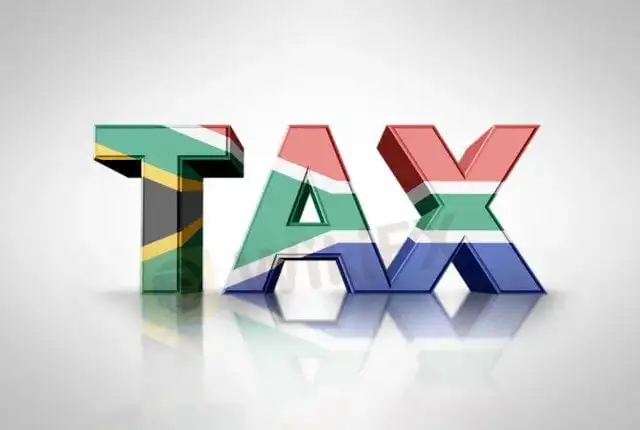简体中文
繁體中文
English
Pусский
日本語
ภาษาไทย
Tiếng Việt
Bahasa Indonesia
Español
हिन्दी
Filippiiniläinen
Français
Deutsch
Português
Türkçe
한국어
العربية
Investors in South Africa Face Hurdles Due to the Taxation of Digital Assets
Abstract:A new tax and financial legislation for digital assets is being developed in South Africa. According to Joon Chong, a lawyer at the South African law firm Webber Wentzel, these new regulations might present investors in digital assets with enormous tax reporting issues.
The challenge would arise from describing the legal meaning the nation is assigning to the asset class, Chong said in an opinion post she penned for top South African business and financial news source Fin24.

Digital assets are anything that is kept on a distributed ledger in a decentralized network, according to the South African Revenue Service (SARS). This includes both money and non-currency assets like NFTs, security tokens and utility tokens. They fall under the Income Tax Act 58 of 1962 (ITA) as a result of this definition, and as a result, their sale will be subject to the “ordinary income tax procedures for financial instruments such as equity shares or unit trusts.”
These regulations classify assets as either capital assets or assets that generate income. This raises the issue of which classification any disposition of a digital asset falls under and if it would be considered a taxable event. Investors in digital assets, however, may find it challenging to demonstrate that their gains or losses from sales are of a capital character because
The crucial factor in evaluating whether profits or losses from the sale of crypto assets are of a capital or income type is the taxpayer's purpose. Due to the high risk and volatility character of this asset class, taxpayers must work harder to demonstrate that their profits or losses are capital in nature, she added.
South Africans should get ready for the new system, Chong said, since the South African Reserve Bank (SARB) has set a 12- to 18-month deadline for the completion of its new AML/CFT and taxation framework for digital assets.
South Africa's battles with nefarious players in the market for digital assets
The string of high-profile digital asset frauds that have been reported in South Africa are substantially to blame for the country's decision to regulate digital assets. The $3.8 billion Africrypt scam is only one example of the country's market-moving fraud cases.
South Africa hopes to introduce a central bank digital currency (CBDC) in addition to the proposed legislation to promote the secure use of digital currencies. An inter-bank operability test was one of several rounds of testing the CBDC underwent by the SARB.
Disclaimer:
The views in this article only represent the author's personal views, and do not constitute investment advice on this platform. This platform does not guarantee the accuracy, completeness and timeliness of the information in the article, and will not be liable for any loss caused by the use of or reliance on the information in the article.
Read more

RM650,000 Lost in Investment Fraud Advertised on Social Media
A Malaysian manager has suffered a devastating financial loss of RM651,800 after falling prey to a deceptive investment scheme via a Facebook advertisement that promised lucrative returns within a short timeframe.

Quantedge Capital Co. Limited: The Fake Platform Behind a RM703,000 Loss
A woman from Kuantan lost RM703,000 after falling for an investment scam linked to a platform called Quantedge Capital Co. Limited. The 47-year-old company manager believed she was investing in a legitimate opportunity shared with her through WhatsApp. Over the course of ten months, she transferred large sums of money but never received any returns.

Scam Alert: Retired Teacher Loses RM700,000 to Stocks Qs Secure
A 69-year-old retired teacher and part-time contractor has lost more than RM700,000 after falling victim to an online investment scam advertised on Google.

The Daily Habits of a Profitable Trader
Every professional trader follows a structured approach to ensure they are well-prepared, disciplined, and able to seize opportunities with confidence. Whether you are a seasoned investor or an aspiring trader, adhering to a robust daily checklist can significantly enhance your performance. Use this checklist to check if you are a qualified trader
WikiFX Broker
Latest News
Global Panic Builds as Forex Shifts into Risk-Off Mode
Shocking! Oil Prices Plunge Below $60
BI Alerts Filipinos: Telegram, Facebook Used for Trafficking Scams
AUD/USD Hits New Lows as Panic Selling Unfolds Amid Robust U.S. Jobs Report
SEC Fines Velox Clearing $500,000 for SAR Failures
How to protect your money during Black Monday
FCA Released New List of Unauthorized Brokers
Singapore Authorities Warned Against WeChat, UnionPay, Alipay Impersonation Scams
Deepfake Scams Nearly Drain $499K from Business
The Rising Trend: Why Forex Brokers Are Investing in Sports?
Currency Calculator







